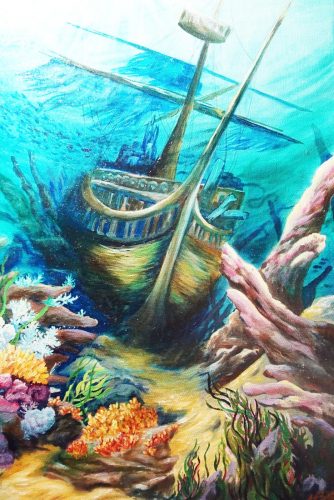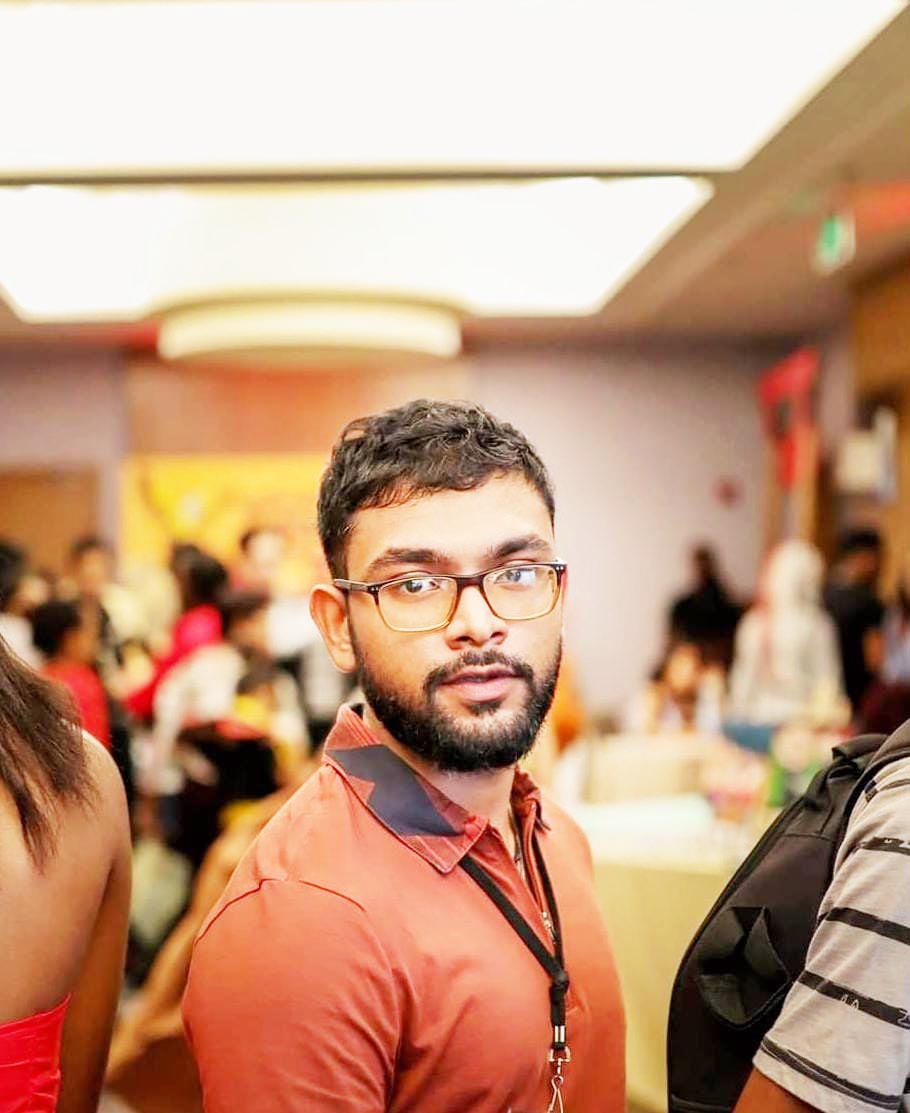By Rae Wiltshire
Chris Bissessar recalled that he had gripped his desk until his palm bruised red. “I could feel pain, but at the same time I was just numb to it all,” the 22-year-old said. The reason? He had just finished arguing with his parents. The fights were steady and since it was the beginning of the pandemic, he could not escape the tension. He felt unheard and misunderstood. He snapped a selfie and went to bed, exhausted from a conflict with no resolve.
The next morning, he posted the picture to his Instagram. It reminded him of Alexandre Cabanel’s painting, The Fallen Angel. Later that day, he saw canvases for sale in Massy Supermarket; a first for Massy. That was his sign to paint a self-portrait, he said.

With his brush strokes moving like time had disappeared and instrumentals in the background, Bissessar replayed arguments and conversations that were at the lowest points in his life. The process surprised him. “I would blink and it’s 3, 4 o’clock in the morning. That was the first time I had painted into the morning hours and didn’t even realise it,” he said.
His portrait reassured him that he was going to be okay and he realised feelings played a vital part in art. “… Hearing people say, oh, I associate sadness, or I associate anger or grief with a certain painting. It was just incomprehensible to me; until I actually did it,” he said. “Tying feelings [to art] is like tying time to the things you are going through.”
The self-portrait was one of the most realistic things he had ever painted. It took him three days and was a cathartic experience that shaped his ideology of life.
“I had the mindset to just keep my head down, don’t interact with anyone, work, save, get a house, move out of your situation if it continues to get worse and that mindset kept me so busy. Like, I was never comfortable just sitting down, doing nothing,” he said.
Bissessar said he felt insane from not being heard and titled the painting: Edge of Psychosis. It was finished in time for his first exhibition at a School of The Nations Charity event in 2020. Working hard felt good; he had goals to complete and the work was paying off. It gave him purpose, but problems came after he began to experience burnout.
“I didn’t give myself a space to rest and come up with new concepts,” he said. It also made him bad at socialising. “My viewpoint was since my parents do not understand [me], why would anybody bother to understand [me].” It reached a point where any downtime felt like wasting time.
Then, he went on a trip to Castara Bay, Tobago and one day a sunset made him re-evaluate his thoughts on life. He saw the sun dipping below the ocean. “[The skyline] looked big and that moment really opened my eyes to how big the world is,”Bissessar said. “How inconsequential we are. I’m one among billions of people. And I just broke down in that moment. It was such a sweet moment. It was a realisation to make a commitment to stop and realise how beautiful the world is that you live in and just slow down and notice these things a lot more.”
Bissessar now visits rooftop restaurants to watch the sunset. He sits on his trunk to watch the clouds drift by. It calms him and grounds him in a present that should be appreciated. Appreciating the world in solitude grounds him to the present moment, he said. “These moments are very small and don’t cost a thing,” he said. This also helped to strengthen his socialisation. “I have health, I have friends. I started to spend a lot more time with friends, going on lunch dates and dinner dates. I really began to value life,” he said. This epiphany would not have occurred without the sunset in Tobago, he noted.
Bissessar recalled that he had bought his first canvas from Austin’s Book Store and created a painting he called Shipwreck. He had started the painting in 2015 and completed it in 2020. The painting is a representation of his development as an artist and a person, he said, and will never leave him.
With such personal connections to his art, Bissessar had to strike a delicate balance when he began to commission his work. He never saw paintings as a means of business. They were his time and feelings, not to be shared. Inevitably, his talents were recognised at his first exhibition and people began to inquire about prices.
“I had felt so uncomfortable selling art because you’re not only selling an image, you’re also selling a piece of you, a piece of your time, you’re selling a piece of your soul. Everything that you’ve done at that moment is captured in that image,” he said.
He found a way to work around this dilemma. Instead of just selling art to clients, he educates them on the principles of design in art and his thought process when creating commissioned work. The result is a shared creation with his clients. His clients appreciate the approach and he is given creative freedom. In these relationships he feels heard and understood. Bissessar can be found at https://www.instagram.com/chris.is.an.awesome.nerd/.




